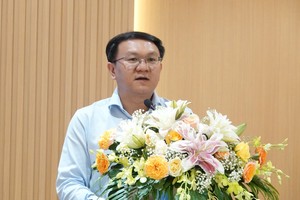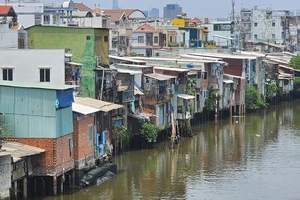The Saigon Real Estate Corporation (Resco) broke ground for construction of a complex of dormitories for workers and apartments for low-income earners at Tan Nhut Commune in Ho Chi Minh City’s Binh Chanh District on September 19.

The complex will cover five hectares, of which 1.45 hectares will be used for construction of dormitories and houses, and the remaining for public construction, transport infrastructure, trees and playgrounds.
The complex will have four buildings from six to 15 floors, including 290 apartments for low-income earners, which can accommodate 1,044 people, 933 apartments for workers which can accommodate 3,942 people and a two-floor kindergarten for 250 children.
There will be a canteen in the dormitory for single workers.
The project is estimated to cost VND792 billion (US$44 million).
Technical infrastructure and dormitories will be built in the first phase and the construction is scheduled to be finished by late 2010.
The remaining accommodation will be started in the second phase and completed late 2012.
The project is aimed at providing housing to workers, officials and their families on low-incomes, and who are working at Le Minh Xuan Industrial Park and in neighboring areas.
Nguyen Tin Trung, Resco general director, said the rent will be VND150,000 per person a month and an apartment of 45 to 70 square meters for low-income earners will cost between VND430 million and 670 million, without VAT.
Addressing the ground-breaking ceremony, Le Hoang Quan, chairman of the HCMC People’s Committee, praised Resco for its contributions to the city’s housing programs.
This project has great political and socio-economic significance, which aims to take care of people needing housing, he said.
The project’s investor and constructors have to also care about protecting the environment and cityscape in construction, he added.
At the ceremony, Nguyen Tran Nam, deputy Minister of Construction, said the country currently has one billion square meters of housing with a population of 86 million. It means that the average per capita housing area is 12.2 square meters.
However, the per capita housing area in Ho Chi Minh City and Hanoi is less than that, at about eight square meters.
The country’s target is 20 square meters by 2020. Therefore, relevant agencies and businesses should try harder and have concrete strategies to hit the target.
























